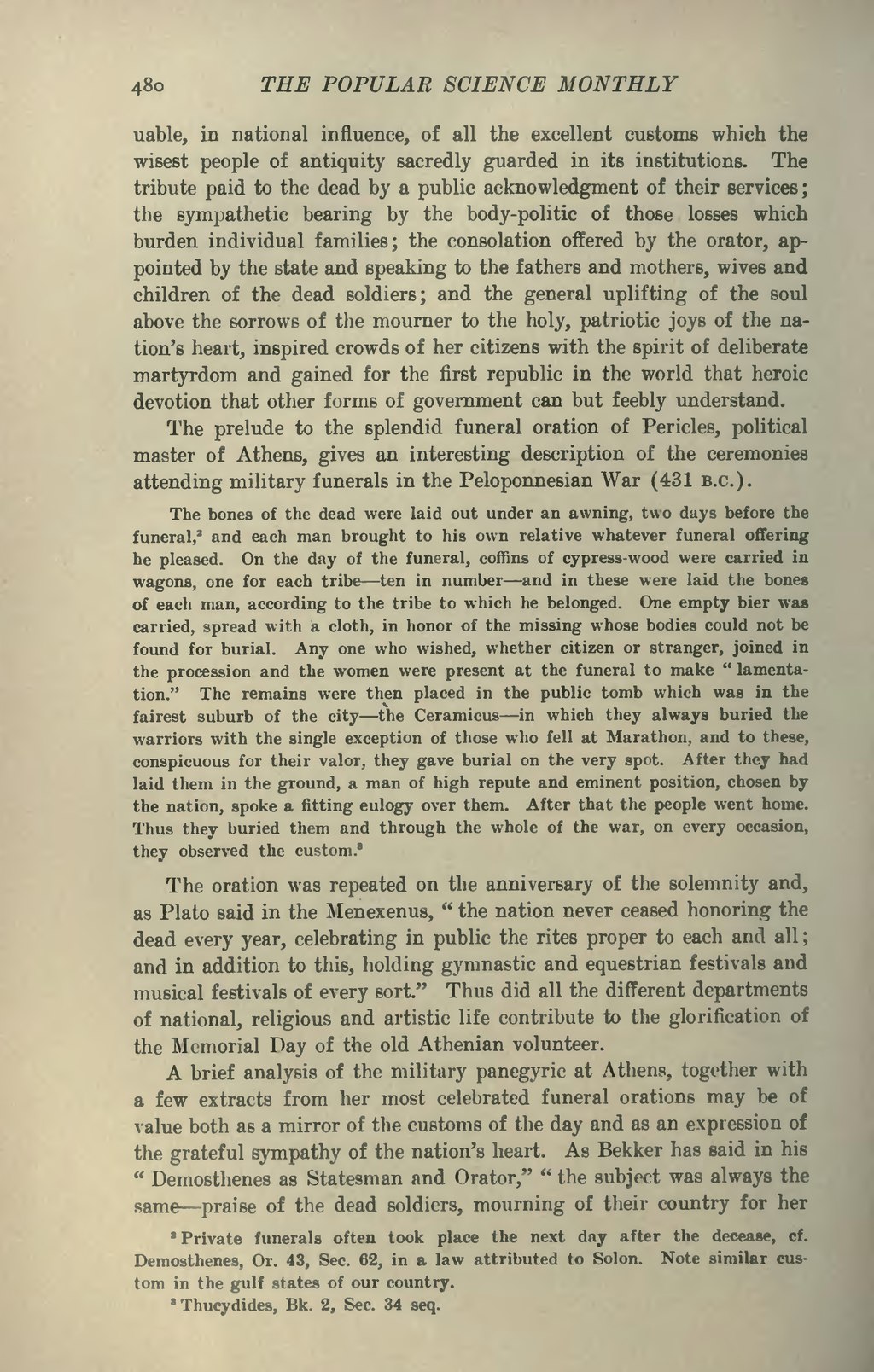uable, in national influence, of all the excellent customs which the wisest people of antiquity sacredly guarded in its institutions. The tribute paid to the dead by a public acknowledgment of their services; the sympathetic bearing by the body-politic of those losses which burden individual families; the consolation offered by the orator, appointed by the state and speaking to the fathers and mothers, wives and children of the dead soldiers; and the general uplifting of the soul above the sorrows of the mourner to the holy, patriotic joys of the nation's heart, inspired crowds of her citizens with the spirit of deliberate martyrdom and gained for the first republic in the world that heroic devotion that other forms of government can but feebly understand.
The prelude to the splendid funeral oration of Pericles, political master of Athens, gives an interesting description of the ceremonies attending military funerals in the Peloponnesian War (431 B.C.).
The bones of the dead were laid out under an awning, two days before the funeral,[1] and each man brought to his own relative whatever funeral offering he pleased. On the day of the funeral, coffins of cypress-wood were carried in wagons, one for each tribe—ten in number—and in these were laid the bones of each man, according to the tribe to which he belonged. One empty bier was carried, spread with a cloth, in honor of the missing whose bodies could not be found for burial. Any one who wished, whether citizen or stranger, joined in the procession and the women were present at the funeral to make "lamentation." The remains were then placed in the public tomb which was in the fairest suburb of the city—the Ceramicus—in which they always buried the warriors with the single exception of those who fell at Marathon, and to these, conspicuous for their valor, they gave burial on the very spot. After they had laid them in the ground, a man of high repute and eminent position, chosen by the nation, spoke a fitting eulogy over them. After that the people went home. Thus they buried them and through the whole of the war, on every occasion, they observed the custom.[2]
The oration was repeated on the anniversary of the solemnity and, as Plato said in the Menexenus, "the nation never ceased honoring the dead every year, celebrating in public the rites proper to each and all; and in addition to this, holding gymnastic and equestrian festivals and musical festivals of every sort." Thus did all the different departments of national, religious and artistic life contribute to the glorification of the Memorial Day of the old Athenian volunteer.
A brief analysis of the military panegyric at Athens, together with a few extracts from her most celebrated funeral orations may be of value both as a mirror of the customs of the day and as an expression of the grateful sympathy of the nation's heart. As Bekker has said in his "Demosthenes as Statesman and Orator," "the subject was always the same—praise of the dead soldiers, mourning of their country for her
